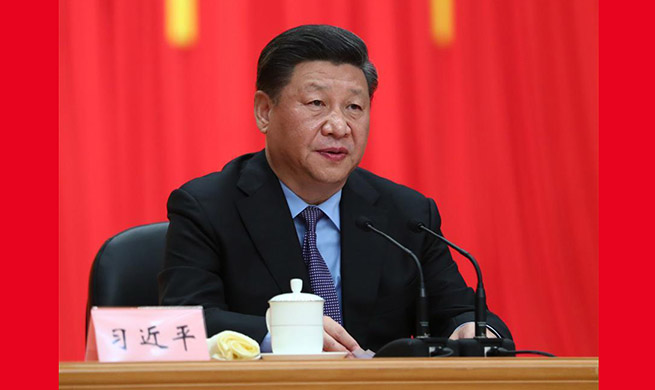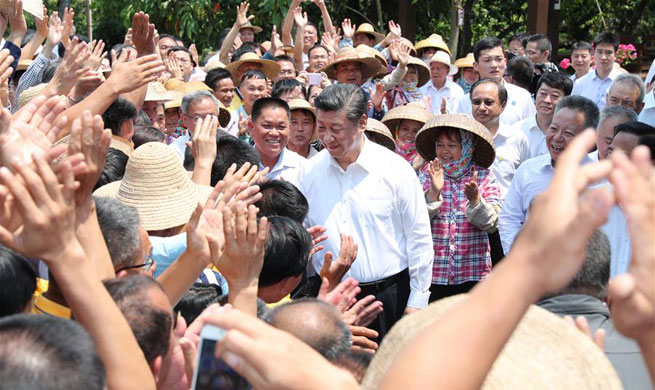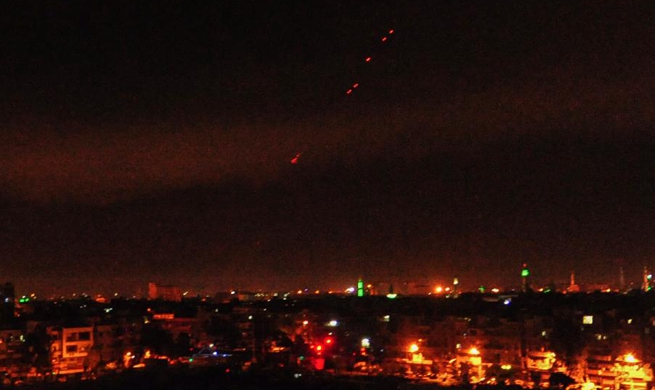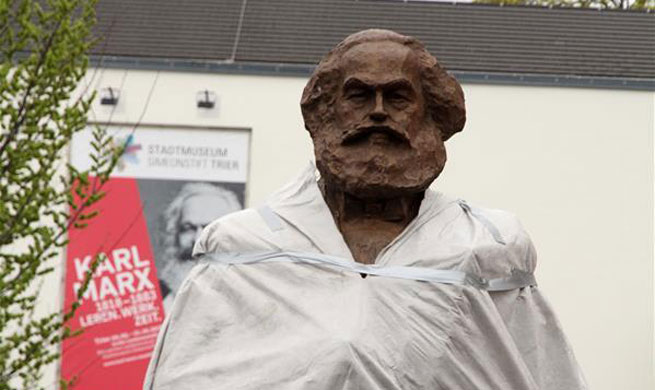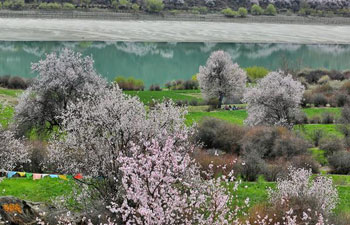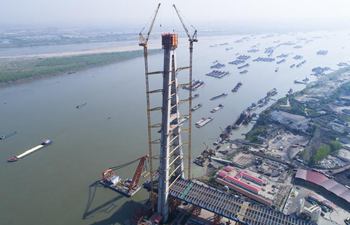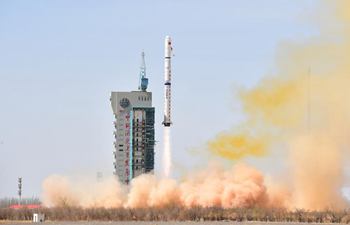by Xinhua writer Liang Junqian
BEIJING, April 14 (Xinhua) -- The United States and its allies are revving up their war machine once again in the Middle East with their latest military strike in Syria, despite the risk of escalating tensions in the wider region.
Early on Saturday, the United States, together with Britain and France, made "targeted strikes" on Syria due to "a very high level of confidence" that the Syrian government was responsible for the alleged chemical attack in Douma, a district on the outskirts of Syrian capital Damascus, on April 7.
It marked the second time that the Trump administration has attacked Syria for its alleged use of chemical weapons since last April, when Washington fired 59 Tomahawk cruise missiles.
It is universally acknowledged that all use of chemical weapons should be stopped and punished. It is equally important to make sure that the punitive response is built on sufficient, credible and verifiable evidence.
So far, those who rained missiles down on Syria have neither convinced the international community that they have evidence, nor that they are willing to look for the truth.
Syria has called the Western accusations "fabricated lies" and called on international bodies like the Organization for the Prohibition of Chemical Weapons to investigate the alleged chemical gas attack.
In the international community, Russia and Iran have also called the Western allegations fabrications and an excuse to attack Syria.
Though the UN has repeatedly warned that the Syrian conflict has no military solution, the United States, along with some its allies, have bypassed the UN Security Council and unilaterally launched military actions against Syria even before any probe was conducted.
The airstrikes not only weaken the authority of the UN, but also violate the purposes and principles of the UN Charter and go against international law as well as the basic principles of international relations.
The Syrian crisis has now entered its eighth year, a period during which the Syrian people have suffered tremendously. Military muscle-flexing would only complicate the situation in Syria, and is very likely to push further away any hope of a peaceful end to the long-running civil war by political means.
Also, escalated tensions would aggravate the geopolitical struggles between the major powers in the region and the wider world.
The most urgent task now is to hold a comprehensive, objective and impartial investigation of the alleged chemical weapon attack, not to show who has a bigger gun.
The UN should play a central role in that effort and all others should help to cool down the situation as soon as possible. Else the Syrian crisis will turn into a big black hole that will suck in every ray of hope for peace for the country and the wider Middle East.










